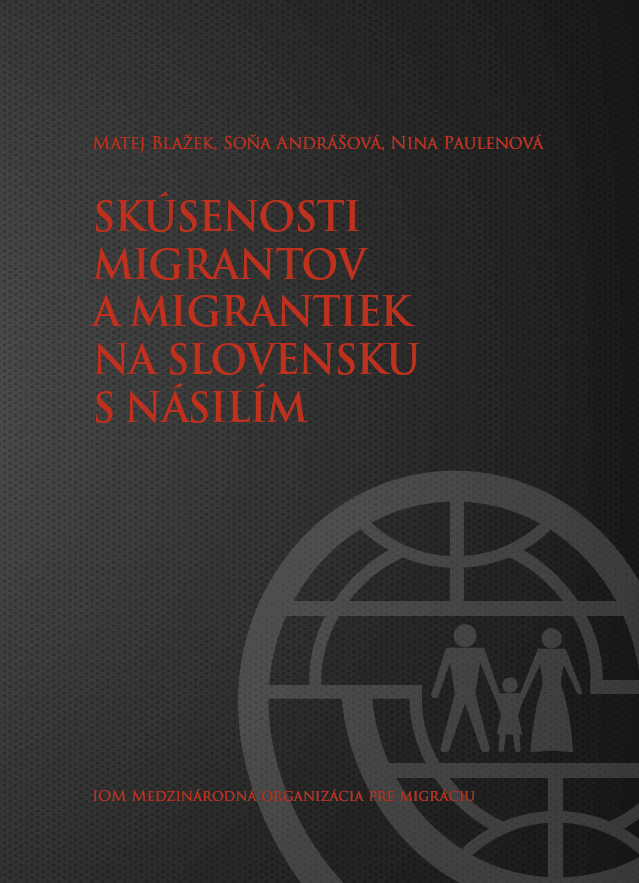The International Organization for Migration (IOM) in Slovakia has published a study Migrants’Experiences with violence in Slovakia on the experiences of migrants in the Slovak Republic with violence, abuse and exploitation. The publication depicts the socio-economic patterns of migrants’ livelihoods, explores the origins of the violence and abuse, and identifies the key factors of risk, vulnerability and resilience. It also evaluates the present law, policy and practice and offers a set of recommendations for the key stakeholders.
 The invisibility of migrants in Slovakia, a country with the second lowest number of migrants within the EU, consequently brings about a lack of attention to their experiences with violence in the public space, abuse at home, or exploitation at workplace. Isolated from the public, formal institutions, helping organisations and research agencies, migrants in Slovakia often find themselves in situations that menace their health and well-being. As a response to the lack of evidence and systematic knowledge, the research project Causes, Forms and Consequences of Violence against Third-Country Nationals delivers a complex analysis of violence against non-EU migrants, which should provide a basis informing the legislation, policy and practice, ultimately helping to reduce the volume of violence, develop a system of prevention and deliver effective support to the victims.
The invisibility of migrants in Slovakia, a country with the second lowest number of migrants within the EU, consequently brings about a lack of attention to their experiences with violence in the public space, abuse at home, or exploitation at workplace. Isolated from the public, formal institutions, helping organisations and research agencies, migrants in Slovakia often find themselves in situations that menace their health and well-being. As a response to the lack of evidence and systematic knowledge, the research project Causes, Forms and Consequences of Violence against Third-Country Nationals delivers a complex analysis of violence against non-EU migrants, which should provide a basis informing the legislation, policy and practice, ultimately helping to reduce the volume of violence, develop a system of prevention and deliver effective support to the victims.
The publication is currently published only in the Slovak language with an English executive summary presented on the pages 148-151.

The project Causes, Forms and Consequences of Violence against Third-Country Nationals in the Slovak Republic is co-funded by the European Union from the European Fund for the Integration of Third Country Nationals. Solidarity and Management of Migration Flows.
 Slovenčina
Slovenčina
 Українська (Україна)
Українська (Україна)
 English
English
